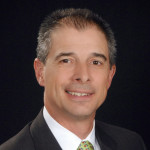 I recently mentioned from the pulpit that we’d been invited to participate in a conversation with other pastors called “The Church in the Age of Donald Trump.” The next day I got a very nice, but concerned email: “Did you attend a session like that when Obama was elected?”
I recently mentioned from the pulpit that we’d been invited to participate in a conversation with other pastors called “The Church in the Age of Donald Trump.” The next day I got a very nice, but concerned email: “Did you attend a session like that when Obama was elected?”
I recognized the address — it’s not the first time he’d written his pastor — because in our church’s practice you can disagree with your pastor, confront or challenge or correct him/her, and remain friends and in good fellowship.
At least, that has proven true so far.
I explained that I had not attended such a session in 2008 or 2012 — nor in 2000 or 2004. No such session has ever before been presented, because the truth is that I have never known concerns to be expressed so roundly as they have been in recent months.
Of course there may have been gatherings of some conservative pastors the last two election cycles, and given my interest in the-Church-in-the-world, I would have responded to any invitation. But in my mainline/progressive circles of influence, never has this been deemed necessary, regardless of the candidates or the election results.
But this time around is different. Nearly everyone agrees — the lovers and the haters — this is different.
I’m not the only pastor who is struggling in a way we have never struggled before. As a Baptist, I staunchly affirm the separation of church and state, and though the line is sometimes very fine, I believe in separating prayerful preaching and partisan politics.
My church, however, also called me to practice the Quaker tradition of “speaking truth to power.”
Twentieth-century theologian, Karl Barth, urged preachers to study with the Bible in one hand and the newspaper in the other — advice that has served me well for more than 16 years. And given the particularly caustic and divisive language of the new commander in chief, the resulting fear experienced by minority groups, and the increase in reports of hate crimes against such groups, I’m finding it difficult to read what I’m reading, see what I’m seeing, and not say what I feel I need to be saying.
Something changed in November; even though the atmosphere has been hyper-partisan for years, something changed in November.
Is it possible in such an environment to offer a gospel critique of vulgarity and meanness? Should we speak out of heart-felt, spiritual angst for a bitterly divided nation? Is it our responsibility to respond to the fear and anxiety created by daily media reports of each new “controversy” and “unprecedented” challenge? Is it even possible, in the Age of Donald Trump, to name the issues and offer a word of prophetic challenge and pastoral hope — and not be accused of preaching partisanship?
I am afraid it is not.
But in my progressive Baptist tradition, how can I shrink from acknowledging our context and addressing the concerns of so many across the religious and political and social spectrum, and be true to my calling?
I am afraid I cannot.
You see the problem.
When we moved to Charlotte, N.C., an old mentor told us we could address virtually any theological issue from our pulpit and speak openly about it — it’s talking about politics that will get you in trouble, he said, “because people care more about politics than theology.”
That sad truth is even sadder in a difficult day. So pray for the country and for the Church, and remember your pastors who are trying to do the right thing. Actually it’s just the same thing we’ve always tried to do. But while the motivation and message have not changed, the context has changed, and the stakes are higher.
Of course we’ll survive this administration — we’ve survived all the others — but if courage to speak freely becomes a casualty of the Age of Donald Trump, we will have lost what is most essential to and important from the progressive pulpit.
